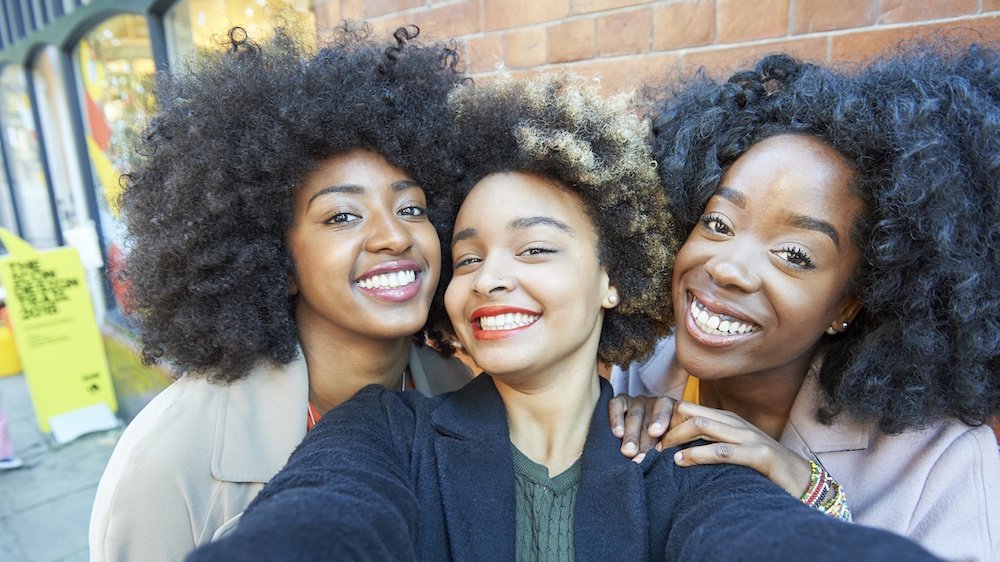If you’re interested in sharing your opinion on any cultural, political or personal topic, create an account here and check out our how-to post to learn more.
Opinions are the writer’s own and not those of Blavity's.
____
Over a month ago, I sat down and watched a beautiful masterpiece titled Malcolm & Marie, starring John David Washington and Zendaya Coleman. Most of its critical reviews and commentary focused on the toxicity of the relationship between the couple and their co-dependence on each of their individual traumas. But what stood out to me was the way Zendaya’s character was further traumatized by allowing Malcolm to tell her story, without receiving acknowledgement, praise, credit or even a part to play in the role that made his movie infamous.
A real-life scenario played out in another masterful piece, The Help, a book, turned-movie written about two Black maids and the racism they endured during the Civil Rights Movement in Jackson, Mississippi. Written by Kathryn Stockett, a white woman, this book and movie was critically acclaimed. However, I only thought of how much more powerful and authentic this story would have been, if the Black maids were the authors of their own stories. Actress Viola Davis, who starred in the film expressed regret in her participation, claimed she “betrayed myself and my people” and that the film was “created in the filter and the cesspool of systemic racism."
As a writer, mother and Black woman, we, woman of color, have allowed others to own, write, produce and prosper off of our stories.
Of course there is the question of power and access. Who is listening? Where and how do women of color find the resources to tell their stories and own our narratives? When we speak of this, we often think on a macro level, that our stories must play out on movie screens, turn into a book deal or reach the ears of Oprah or the Obamas. And how powerful and cathartic it is to finally have the world hear your story — or for Meghan Markle to sit in front of Oprah and release her pain, experiences with racism and trauma. But change does not just occur on macro levels.
The other night, I was speaking to one of my closest friends I’ve known since childhood. We were reliving our past. We had both transitioned to suburban life to provide a better life for our children, maintained our careers, bought beautiful homes, watched as our bodies seemed to shift faster than we could catch it and was witnessing our biological clock almost start to tick to an end. And although we felt blessed with the lives we were given, there was a sense of dissatisfaction with it all. We learned that single motherhood did not make us superheroes, but, at times, drained us of the energy we desperately needed for something else that was trivial in our lives.
I, after being divorced many years, was recently rediscovering love and contemplating marriage. And she was in the middle of getting divorced, contemplating the necessity and boundaries of relationships. Both of us felt like suburban life had betrayed us — all image and no community. Few people of color could be role models for our children, and racist pockets screamed louder than our manicured lawns. We longed for the authenticity of the city. Our careers no longer fulfilled us.
I am an educator during a period of a “new racial reckoning,” and institutions are trying to discover new ways to be more diverse and equitable. Meanwhile, many people of color, including myself, have always felt the stings of injustice from the same institutions that are supposed to educate, uphold and protect. We were pessimistically rolling our eyes.
We were tired. We also admitted to being restless, still searching for something we couldn’t quite put our hands on, reliant on God to hit us with extra doses of joy. We were in a mid-life women’s crisis. We both agreed that we couldn’t let go of our therapists just yet because we were either realizing a trauma, in a new trauma or overcoming a trauma — all which required healing. After listening to each other, we understood that we are all in a perpetual state of healing and re-healing. This life has built-in highs and lows.
But, what healed us at that moment, when I cried and laughed all within an hour of WhatsApp voice messages, was that we had shared our stories with one another — one Black woman to another. We honored each other’s narratives. We pledged to heal others by telling our truths, and look to each other when we feel like our voice is being taken away by life’s twists and turns.
For Women’s History Month, as we honor all the women icons, legends, trailblazers, freedom fighters, history makers, etc., let’s also honor ourselves, by always being the authors to our own stories and being true to our own narratives. Change and healing occurs when we remember that our voice is imperative and our stories, no matter how insignificant, small or minor it may seem, matters for ourselves and other women all around the world.
Let's also pledge to support one another by listening to each other's fears, traumas, triumphs and joys. Because although many of us may never find ourselves in a chair in Oprah's backyard, we can find or rediscover our voices and check our souls through the shared stories of good, powerful, honest, but flawed women.
